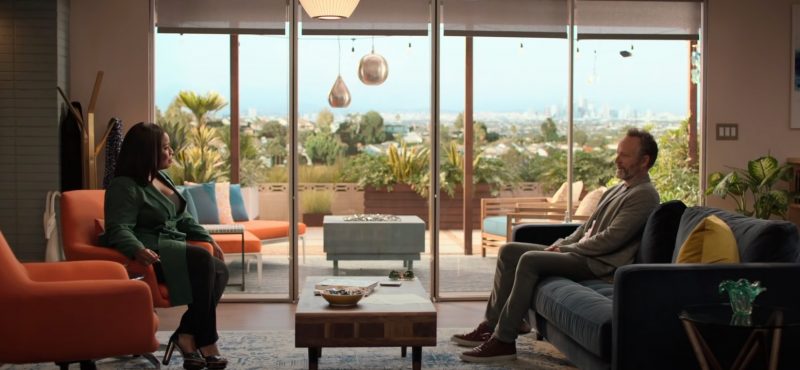May is Mental Health Awareness Month, and the release of an upcoming HBO drama series couldn’t have come at a better time. HBO’s reboot of “In Treatment” will bring back a much needed spotlight on mental health issues. With the COVID-19 pandemic still going on more than a year later, millions of Americans have struggled with mental health challenges for various reasons. TV has acted as a bright spot for many, a source of comfort, and a temporary escape during this time. “In Treatment” looks to provide viewers with this and much more as it sheds light on the serious mental health issues that people, especially people of color, are facing today, and the therapy that can help us navigate through our hardships.
New Faces, Familiar Places
Season four of “In Treatment” comes a decade after the finale of season three, and was reimagined from the previous three seasons of the show. Initial talks about a reboot for the show started last summer, a few months into the pandemic, and production started in the fall. While the show still centers around a therapist and her private sessions with patients, Uzo Aduba replaces Gabriel Byrne as the lead, and the time period reflects the new realities of today. At the Television Critics Association’s winter press tour, the show’s producers shared why it was important to them to have a Black female therapist–Dr. Brooke Taylor–this season and to have her treat patients who are also people of color.
“As we approached reimagining the show, we wanted to make sure that our priorities were to honor the original American version, but also make sure that we were updating it and making it feel like a show that is being made in 2021,” said Co-Executive Producer Jennifer Schuur. “We have an opportunity to say some very important things about our particular time. We have racial justice movements and the Me Too movement happening. We talk about toxic masculinity and addiction. We cover a lot of topics all set in the present-day.”
Josh Allen, co-executive producer, also remarked, “I wanted to, in reimagining the show … make sure that we were expanding the idea of who gets access to therapy and under what circumstances to destigmatize it. We especially, in 2021, need it. I think putting that particular face on it, hopefully, will do something in that regard. That was the thought behind creating this particular therapist and also creating a diverse patient pool that she works with.”
Challenging Traditional Perceptions
Allen, who is Black, also shared his own personal story about mental health and seeing a therapist as an adult: “I come from a family of people who needed therapy and didn’t know they needed therapy. And so, often growing up it was very much like, ‘Oh.’ When I started seeing my first therapist years ago, my family was like, ‘Well, you’re not crazy, so why are you seeing a therapist?’ There’s such a stigma attached to it, especially in communities of color, so it felt important to me, personally, to put that on television to show that we all need this.”
For Aduba, playing a therapist who has to spend a great deal of time in active listening mode was incredibly challenging. “This is easily one of the hardest jobs I’ve ever had in my life, the hardest things I’ve ever worked on in terms of the preparation,” said Aduba. At the same time, the show portrays her character as a very open person who shares her own internal struggles with her patients. “She brings her own experiences and her own story in part into the room,” added Aduba. “I think what’s also been interesting in doing this show is that you also get to watch how that type of therapy and treatment is exercised from patient-to-patient and session-to-session.”
Schuur also commented, “I think Dr. Brooke Taylor brings much more of herself into the room with her patients, and she believes in self disclosure, and without asking anything of the patients themselves to take care of her. Offering her own life experience and her feelings in a session actually creates more honesty with her patients and an ability for them to become more vulnerable and open with her.”
As Real as it Gets
Scenes throughout the show mirror the real-life events of 2020, as “Brooke” goes from having in-person therapy meetings in her office to videoconferencing sessions at her home when the COVID-19 environment sets in. Saluting her character, Aduba remarked, “”Even in this pandemic, as you hear her say in the show, she shows up for her patients. She shows up for them no matter what. And, in this instance, even during quarantine, during lockdown, she’s dressed, ready to be of service to them.”
HBO’s “In Treatment” premieres on May 23.
